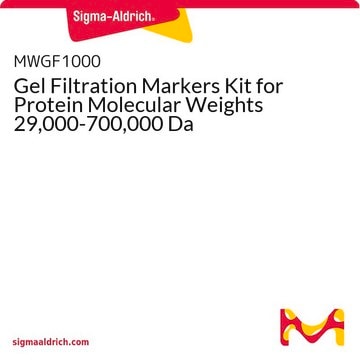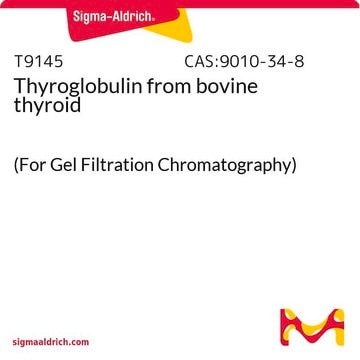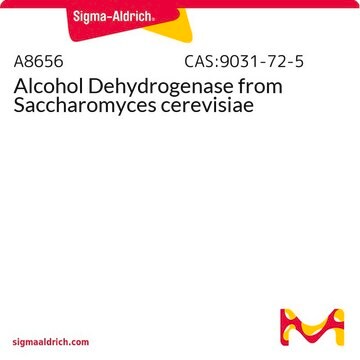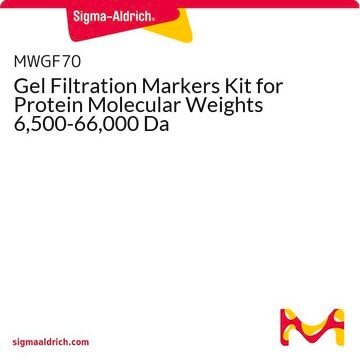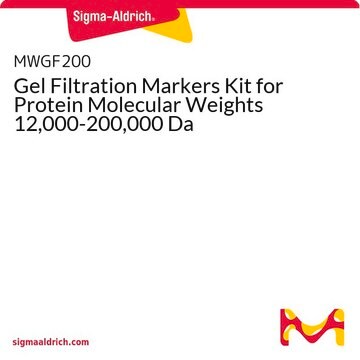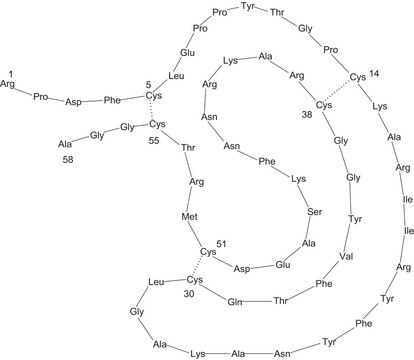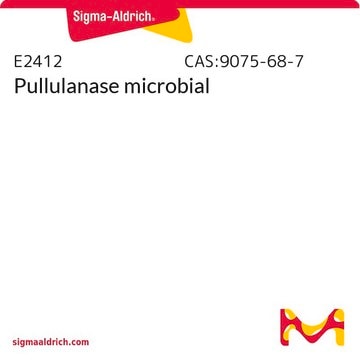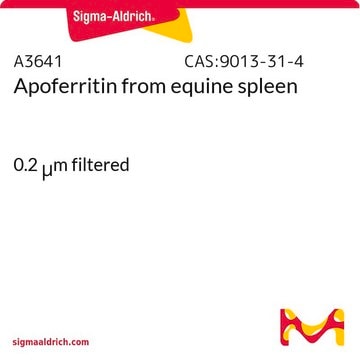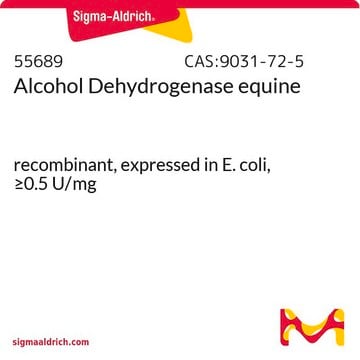A8781
β-Amylase from sweet potato
Sinónimos:
1,4-α-D-Glucan maltohydrolase
About This Item
Productos recomendados
form
powder
Quality Level
mol wt
~200,000
packaging
vial of 15 mg
greener alternative product score
old score: 57
new score: 1
Find out more about DOZN™ Scoring
greener alternative product characteristics
Waste Prevention
Safer Solvents and Auxiliaries
Design for Energy Efficiency
Learn more about the Principles of Green Chemistry.
sustainability
Greener Alternative Product
greener alternative category
storage temp.
−20°C
¿Está buscando productos similares? Visita Guía de comparación de productos
General description
Application
- as a molecular weight marker in blue native polyacrylamide gel electrophoresis (PAGE)
- as a standard for calibration curve preparation in size exclusion chromatography
- as a model protein for small-angle X-ray analysis (SAXs)
Biochem/physiol Actions
signalword
Danger
hcodes
pcodes
Hazard Classifications
Resp. Sens. 1
Storage Class
11 - Combustible Solids
wgk_germany
WGK 3
flash_point_f
Not applicable
flash_point_c
Not applicable
ppe
dust mask type N95 (US), Eyeshields, Faceshields, Gloves
Certificados de análisis (COA)
Busque Certificados de análisis (COA) introduciendo el número de lote del producto. Los números de lote se encuentran en la etiqueta del producto después de las palabras «Lot» o «Batch»
¿Ya tiene este producto?
Encuentre la documentación para los productos que ha comprado recientemente en la Biblioteca de documentos.
Los clientes también vieron
Protocolos
Gel filtration chromatography is an established method for determining the size and molecular mass of proteins.
Nuestro equipo de científicos tiene experiencia en todas las áreas de investigación: Ciencias de la vida, Ciencia de los materiales, Síntesis química, Cromatografía, Analítica y muchas otras.
Póngase en contacto con el Servicio técnico
